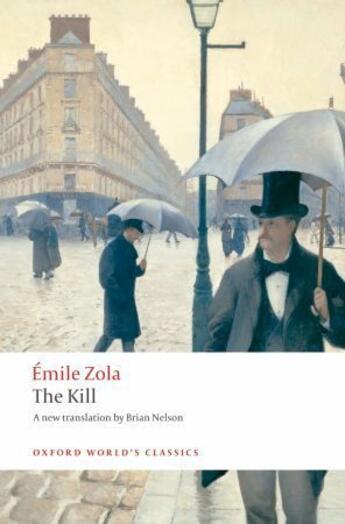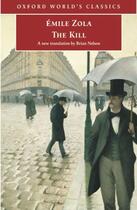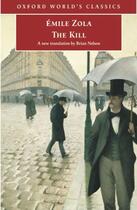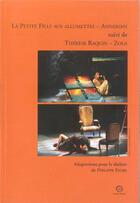-
Date de parution : 15/09/2008
-
Editeur :
Oxford Up Elt
-
EAN : 9780199536924
-
Série :
(-)
-
Support :
Papier
Résumé:
The first translation into English since 1895 The Kill is the second volume in Zola's great cycle of twenty novels, Les Rougon-Macquart, and the first to establish Paris as the centre of Zola's narrative world Regarded as Zola's finest novel before L'Assommoir and one of the most important... Voir plus
The first translation into English since 1895 The Kill is the second volume in Zola's great cycle of twenty novels, Les Rougon-Macquart, and the first to establish Paris as the centre of Zola's narrative world Regarded as Zola's finest novel before L'Assommoir and one of the most important novels about nineteenth-century Paris and its rebuilding under Baron Haussmann Superb translation by Brian Nelson perfectly captures the energy of the original 'It was the time when the rush for spoils filled a corner of the forest with the yelping of hounds, the cracking of whips, the flaring of torches. The appetites let loose were satisfied at last, shamelessly, amid the sound of crumbling neighbourhoods and fortunes made in six months. The city had become an orgy of gold and women.' The Kill (La Curée) is the second volume in Zola's great cycle of twenty novels, Les Rougon-Macquart, and the first to establish Paris - the capital of modernity - as the centre of Zola's narrative world. Conceived as a representation of the uncontrollable 'appetites' unleashed by the Second Empire (1852-70) and the transformation of the city by Baron Haussmann, the novel combines into a single, powerful vision the twin themes of lust for money and lust for pleasure. The all-pervading promiscuity of the new Paris is reflected in the dissolute and frenetic lives of an unscrupulous property speculator, Saccard, his neurotic wife Renée, and her dandified lover, Saccard's son Maxime.
Readership: Readers of classic fiction, of Zola, students of French literature, nineteenth-century French studies, the novel, social history, urban history, representations of Paris, theories of modernity
Donner votre avis

















